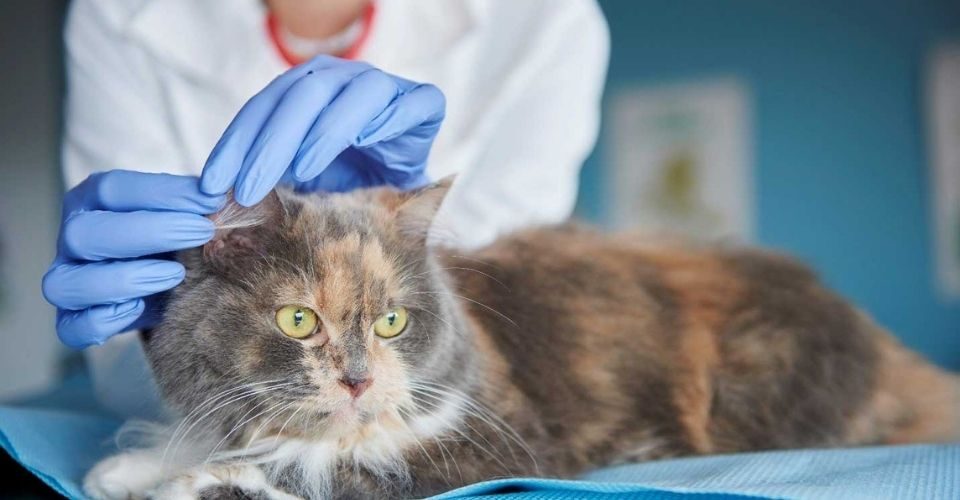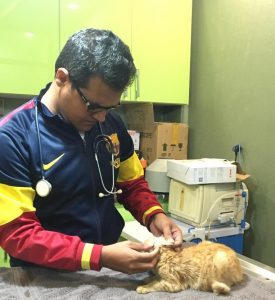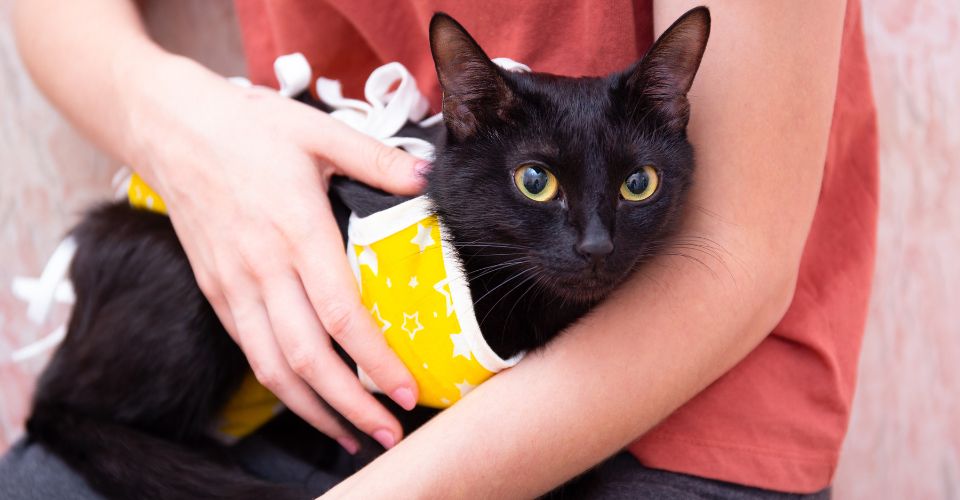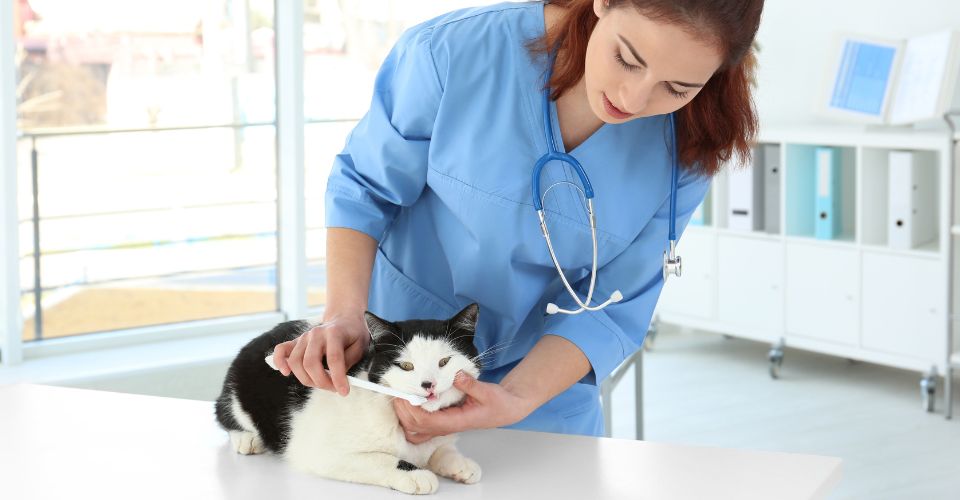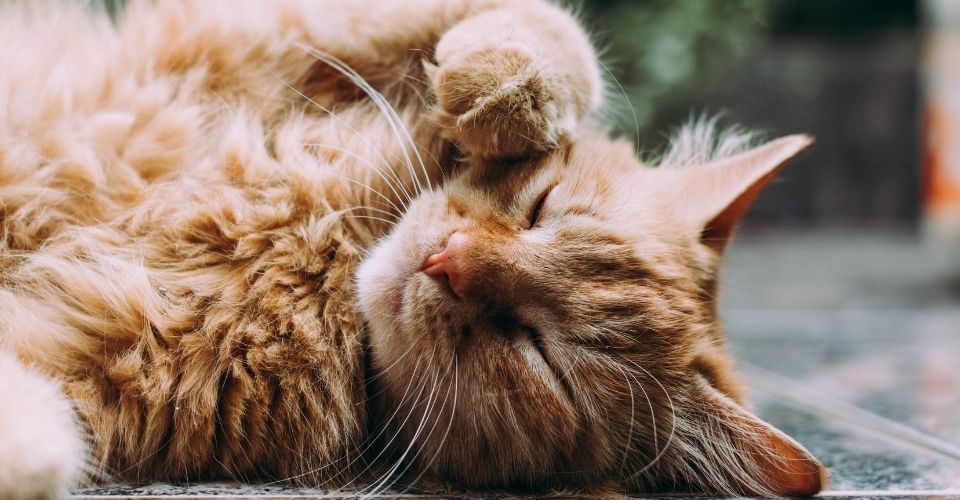Do you want to look out for signs your cat is sick?
You must be pretty mad at yourself for not being able to spot the signs of illness in a cat when the vet told you that your cat has been sick for a while. Please, don’t. It’s neither your fault nor your cat’s. Cats are stoic creatures, often hiding their discomfort when they are sick or unhealthy. Didn’t know this? Well, you are not alone. Most of the cat parents are unaware of the stoic natures of their cats.
While living in the wild, cats have developed this instinct of hiding their vulnerability to protect themselves from vicious predators. You might be wondering that your cat has no potential threat at home, so why do they continue hiding their vulnerability? You are probably right but cats had been doing it for generations so expecting them to give up their instinct of self-protection is a pretty big ask.
This stoic nature of cats is making it hard for cat owners, not only for the neglectful ones but also for the concerning and caring ones, to spot sickness in cats at early stages. Sometimes, cats won’t even display noticeable signs of illness even if they are seriously ill or in pain. This is why owners realize it after the vet tells them that their cat is sick.
So how to tell if your cat is sick? How can you know if your seemingly healthy feline friend is unwell and needs some medical treatment?
Since cats are not going to change their stoic nature, the only good option for you is to understand the signs and symptoms of sickness in cats. You should learn to spot certain changes in the body language of your cat or a demeanor if your cat is doing well or not.
Without further ado, let’s dive into the signs your cat is sick.
Causes of Sickness in Cats
“Why is my cat sick?” is one of the most frequent questions asked from veterinarians. A cat owner is always interested in getting an answer to this question. Your cat can be sick due to one or multiple reasons. Some of the most common causes of illness in cats are hairballs, eating too much or too little, food allergies, and heat stroke, etc. It is pretty hard to control these causes of sickness. So your best bet would be spotting cat sickness at an early stage.
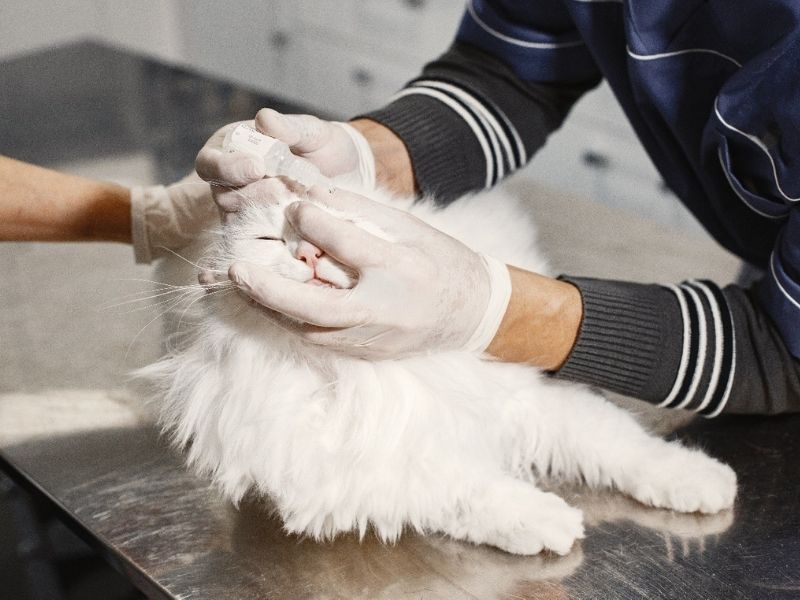
Symptoms of Illness in Cats
Now that you know your cat’s reserved nature is making it hard to spot a weakness, you need to stay vigilant around your cat, looking for subtle behavioral changes. To be able to do that you should familiarize yourself with the most common signs of sickness in cats.
Below, we discuss some of them.
1. Vomiting
While the healthiest cat may vomit once in a week, to regurgitate a hairball. Vomiting to expel hairball is quite common and one does not need to worry about it. According to Cornell University Hospitals for Animals, if your cat is not expelling hairball occasionally, a serious complication may occur.
But frequent bouts indicate that there is something wrong with your feline fella. If your cat is vomiting after eating, she might have eaten some poisonous plant or herb, spoiled cat food, human food or medicines, or some indigestible object laying on the ground. This could cause sudden illness in cats. If your cat does not seem to be herself after vomiting, it might be one of the signs your cat is sick. You need to consult the veterinarian for advice.
2. Loss of Appetite
Loss of appetite can be normal for a cat but it should not be ignored completely. You can watch for the trends in the eating habits of your cats. If your cat eats a minimal amount of food or eats no food at all, it is time to consult a veterinarian. Lack of food for a few days can cause a serious problem called hepatic lipidosis in cats. Also known as fatty liver, hepatic lipidosis can lead to the development of jaundice in cats. This is evidenced by the yellowing of the whites of your cat’s eyes.
3. Weight Changes in Cats
Just like humans, a gradual increase or decrease in weight can be an indicator of illness in cats. Where weight gain becomes a problem over time, weight loss indicates a more serious and urgent problem. If you observe that your cat is gaining or losing weight, consult your vet right away. Especially, if it is the loss of weight.
4. Lethargy
Lethargy in cats may serve as another indication of sickness in a cat. If your cat that was full of energy and always looking for opportunities to play seems to be lying around and sleeping all the time, you should be concerned. Your cat is likely not feeling well.
5. Changes in Urination Pattern of Cats
Changes in the urination pattern should never be ignored as it indicates serious problems like urinary tract infection or kidney issues. These fluctuations in urination patterns may include a change in frequency, volume, or composition i.e. blood traces in urine. This goes without saying but you must visit your vet after spotting these signs.
6. Hair Loss and Skin Irritation
Skin irritation and hair loss in cats can be a sign of external parasites or a skin disease. If you witness that your cat is itching and scratching all the time, you need to book a vet appointment.
7. Limping
Limping in cats is a sign of some injury or a condition like arthritis. Arthritis makes their joints less flexible and causes stiffness and pain. If your cat is continuously limping, it could be a sign that your cat is sick.
8. Bad Breath
This is a sign of dental problems in cats. You don’t need to worry if there is mild bad breath. However, severe and continuous bad breath could be troublesome. Bad breath in cats might be a symptom of many diseases ranging from respiratory, kidney, liver, and periodontal disease, according to Cornell Feline Health Center.
9. Diarrhea
Diarrhea is not a disease itself but an indication of problems with the digestive system of cats such as inflammation of the gastrointestinal tract. While some variations in the consistency of cats’ stool are pretty normal i.e. with changing cat diet, the persistence of liquid stools for more than two days may be a symptom that your cat is sick.
10. Increased Thirst
The maintenance of water balance is very crucial for the good health of cats. While excessive drinking is not a problem itself, it could be an indication of many serious problems such as kidney dysfunction, urinary tract infection, a stressed liver, and diabetes mellitus, etc., according to International Cat Care. Therefore, you should rush to the vet if your cat is showing increased thirst.
11. Changes in Breathing Activity
Difficulty breathing in cats, also known as dyspnea, is an indication of serious respiratory disorders. According to Dr. Fletcher, DVM, and assistant professor at Cornell University’s College of Veterinary Medicine, difficulty breathing in cats is commonly an indication of asthma, heart failure, and pleural effusion. If you ever see your cat with lowered head, body extended forward, and tend to vomit, you should know that they are experiencing difficulty in breathing and needs a quick checkup.
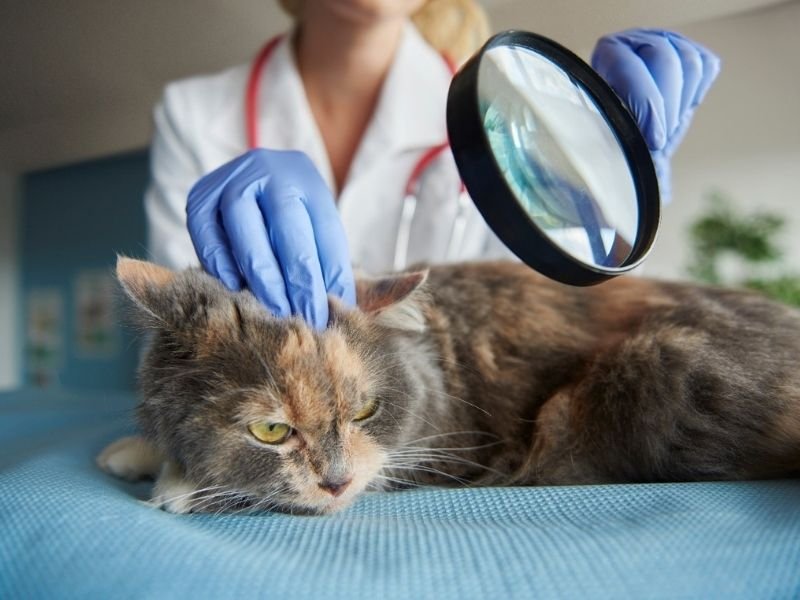
Above we discussed some of the signs your cat is sick. You should however note that this is not an exhaustive list. Your cat may display some signs of illness that we may have omitted.
We believe you would have found this article useful. We have a separate section for Cat Health that a cat parent would treasure. You can also subscribe to our newsletter and be the first one to get the latest updates, tips, and experts’ advice about cat care, feed, health, and wellbeing.

